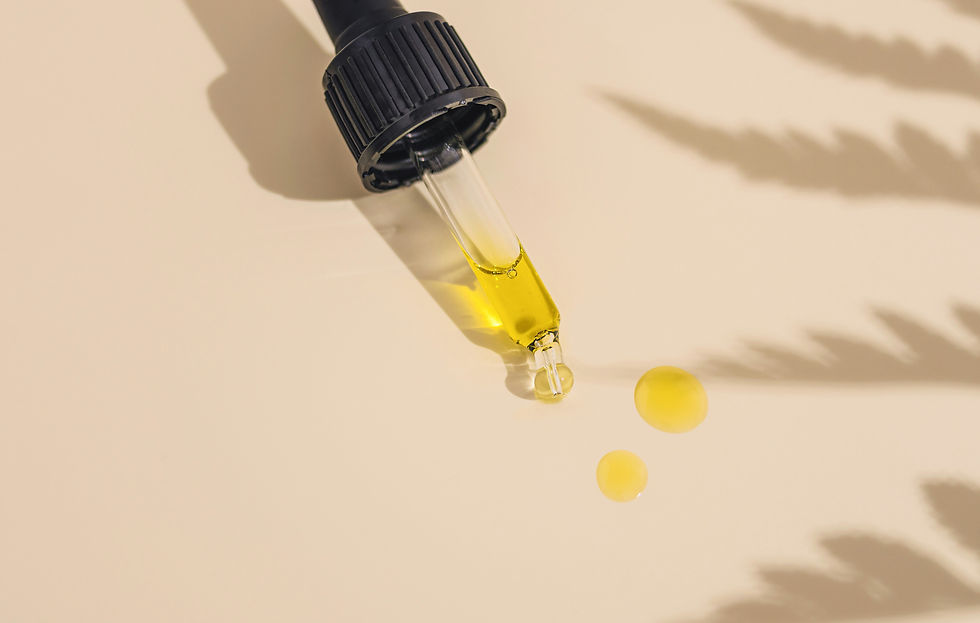What's the Word on CBD?
- sream2
- Oct 15, 2024
- 2 min read
Updated: Oct 18, 2024
As the global landscape surrounding cannabis changes, the public is more curious about the benefits and shortfalls of the plant. Scientists are taking a deeper look into the compounds and components of the plant—namely cannabidiol.

Cannabidiol, more often referred to as CBD, is a non-inebriating compound from the hemp plant. To put it simply, CBD does not cause a 'high', making CBD a great candidate for regular use. Scientists have primarily performed studies for three conditions (anxiety, sleep, and chronic pain) to learn how CBD affects their symptoms. Several of these studies have been successful for candidates.
When looking into the effects of CBD, many self-reports say that the compound eases anxiety. During a study when subjects with anxiety received either CBD or a placebo, those given the CBD reported being less anxious before giving a public speech. In another trial meant to evaluate CBD’s effects on anxiety, participants were surveyed at the beginning of the trial, three months, and six months after the start of the trial. At both the three-month and six-month mark, patients reported feeling less anxiety than they had before the CBD treatment.
Scientists are also interested in CBD’s effects on sleep. One study performed on people with epilepsy showed a three-month period of daily CBD use resulted in better sleep. However, testing on individuals without sleeping problems showed that CBD did not affect their sleep-wake cycle. Another trial on individuals with insomnia, individuals stated they had more restful sleep while using CBD.
Possibly the most complicated subject is the effect CBD has on pain. While CBD is believed to have a positive effect on pain management, things like dosage and method of delivery can vary from person to person. For example, in the study The Effectiveness of Topical Cannabidiol Oil in Symptomatic Relief of Peripheral Neuropathy of the Lower Extremities, patients were split into two groups, CBD and placebo. The study found that those using the topical CBD oil to treat pain reported "significant reductions in intense pain," while the placebo group was still experiencing pain. Studies and personal accounts vary on who and how CBD helps with pain, and the amount of pain being experienced.

Overall, people have utilized hemp remedies since 2000 BC and modern medicine is working to unlock all its secrets. Scientists agree that much more research is needed, particularly regarding the effects of CBD on pregnant women, the elderly, and its interactions with medications. While early studies suggest promising potential for this remedy, it is important to approach it cautiously. CBD holds great potential, but for now, it’s best used with discretion and under the guidance of a healthcare professional
COMING SOON!
Happy Patch CBD Relief Patches
A new way to support your body, one patch at a time.
SOURCE LINKS:



Comments